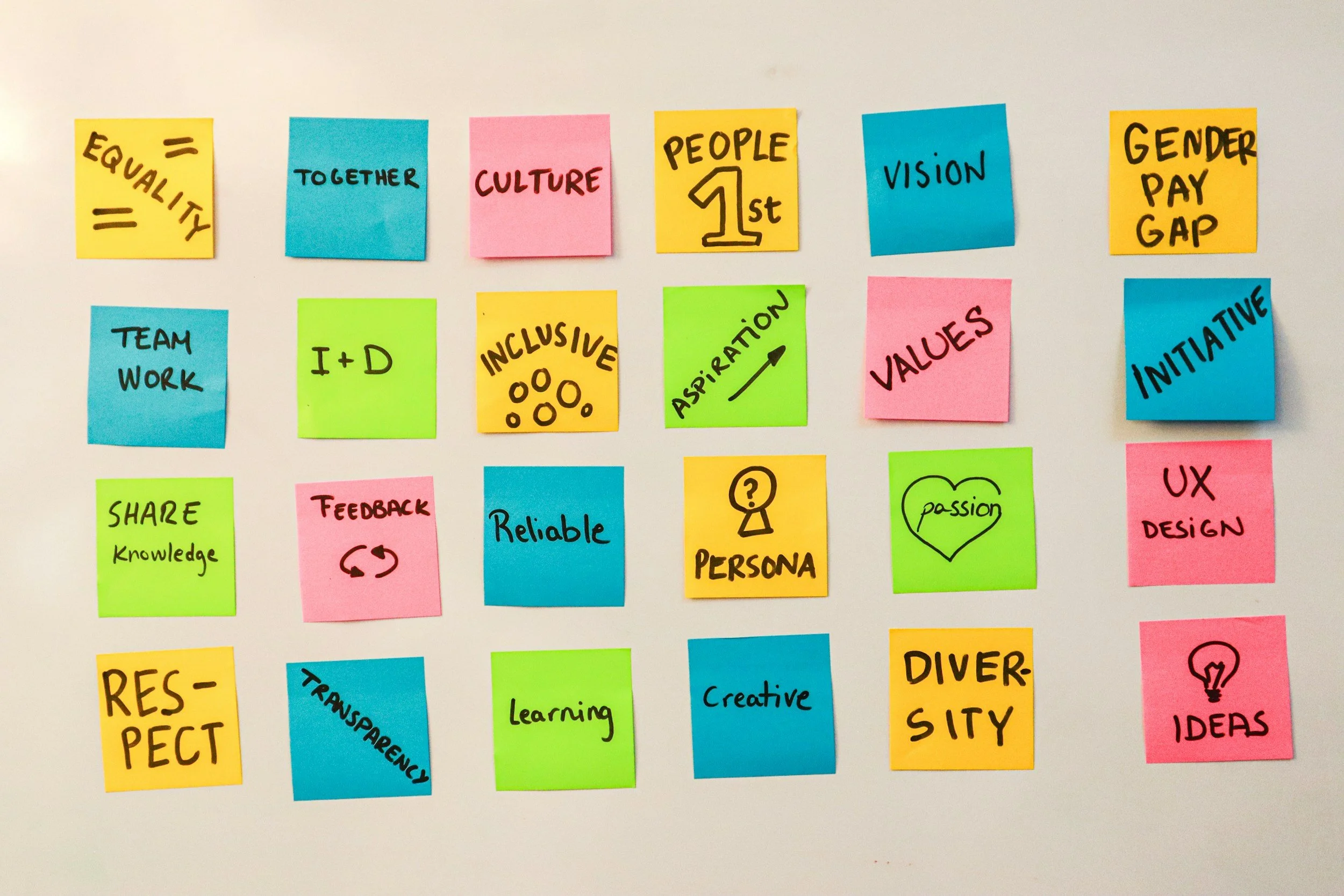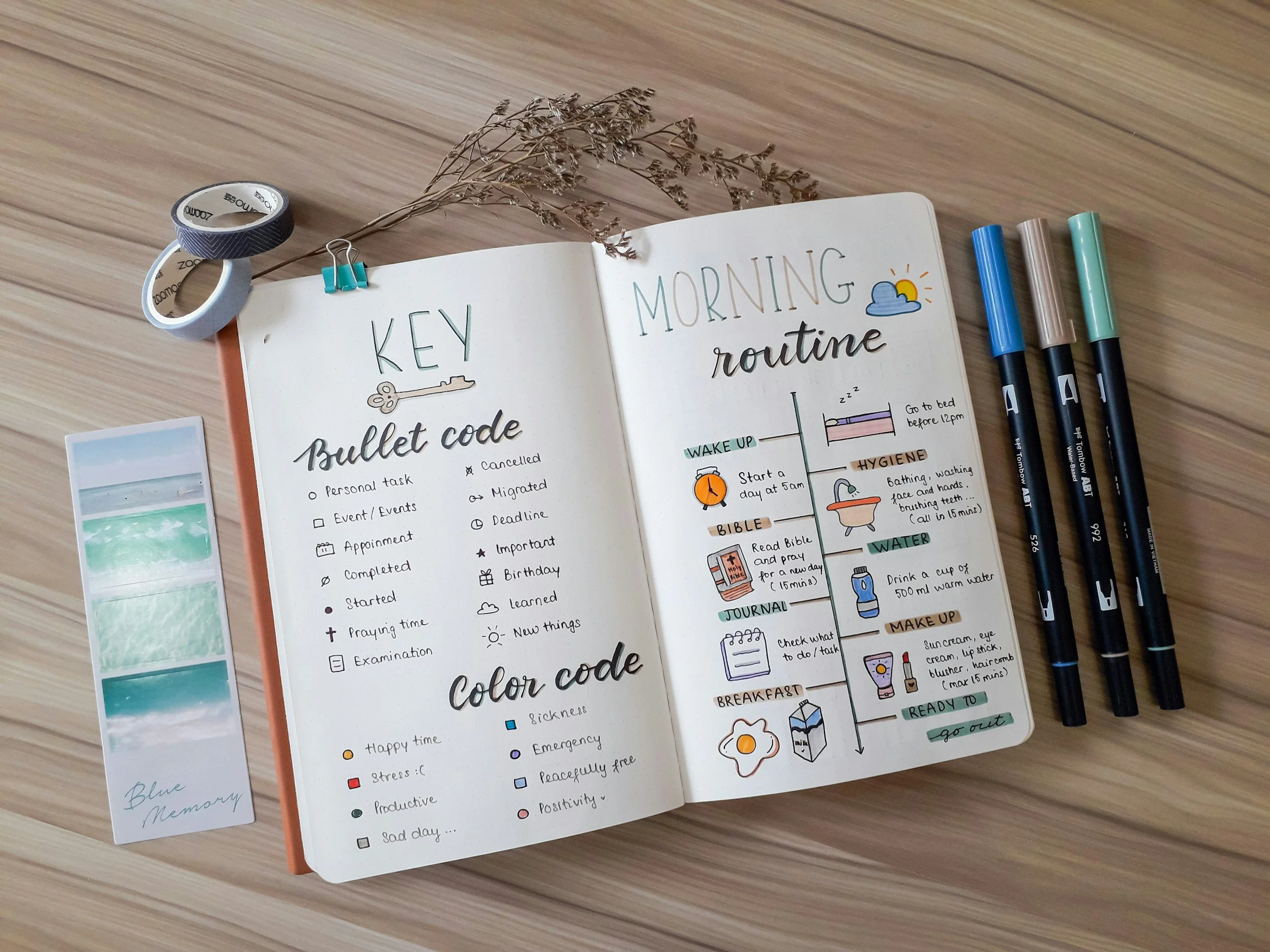
Mental Health Blog
Advanced Counseling of Bozeman believes you are your own best healing resource — and you don’t have to do it alone.
Explore our blog for perspectives and tools to support your journey toward better mental health and lasting wellbeing. We believe in using evidence-based, heart-centered methods and trusted, effective modalities to achieve the peaceful, purposeful, and fulfilled life that you deserve.
Acquaint yourself with the work of our experienced clinicians and see if their work speaks to you.

Listening to the Signs of Overwhelming Stress
When stress goes unrecognized, it can shape how we think, feel, and function. This post looks at common emotional, behavioral, and physical signs of overwhelming stress, with an emphasis on awareness, compassion, and early intervention.

Values, Purpose, and Living in Alignment: Part 1 of 4
Rather than focusing on discipline or self-improvement, this post explores how values and purpose can gently guide your life. Through a trauma-informed lens, it offers space to reflect, get curious, and reconnect with what feels meaningful in this season of your life.

Survival, Not Failure: Understanding Fight, Flight, and Freeze
Fight, flight, and freeze aren’t character flaws — they’re protective nervous system responses. This post breaks down how these survival patterns show up in everyday life, why they make sense, and simple ways to support your nervous system with more compassion and regulation.

Creating a New Year Routine That Supports Your Mental Health
The new year doesn’t have to mean reinventing yourself. This blog explores how small, supportive routines can help regulate your nervous system, reduce stress, and create steadier days without the pressure of perfection.

Anxiety 101: What It Is, What It Isn’t, and How to Respond
Feeling on edge as the new year starts? This post breaks down what anxiety is (and isn’t), how it shows up in the body, and practical steps to help calm your nervous system and regain a sense of control.

How to Find a Therapist That’s Right for You in the New Year
Choosing a therapist isn’t about finding the “perfect” provider—it’s about finding the right fit for you. Learn what to look for, what questions to ask, and how to trust yourself as you begin or return to therapy.

Why is it So Hard to Keep Your New Year’s Resolution?
Lasting change isn’t about willpower, it’s about intention. Explore how the SMARTEST goal framework can help you set goals that align with your values, support growth, and prioritize progress over perfection.

Finding Intention and Calm in the Holiday Season
If the holidays feel complicated this year, you’re not alone. This post offers gentle perspective shifts and small, doable ways to support your well-being without adding more pressure.

Creating and Maintaining New Year’s Resolutions
New Year’s resolutions don’t work because we lack motivation — they fail when we lack a sustainable plan. This piece walks through practical, research-backed steps for setting goals that actually stick, from reflecting on the past year to using SMART goals, breaking things down, staying flexible, and celebrating small wins.

The Hidden Role of Socioeconomic Factors in Mental Health
Mental health doesn’t exist in a vacuum. This post explores how socioeconomic factors — such as income, housing, employment, and access to care — shape emotional well-being and influence the therapy process itself. By widening the lens beyond individual symptoms, it highlights how chronic stress, inequality, and systemic barriers impact mental health, while also emphasizing the protective power of social support and community-based care.

Human Connection Amidst Artificial Intelligence’s Entrance into Mental Healthcare
Artificial intelligence is showing up everywhere, including mental health care, but its role is often misunderstood. This post explores what AI actually is (and isn’t), how it’s currently being used in therapy, and the ethical questions it raises around privacy, trust, and human connection. While technology may support clinicians and clients in meaningful ways, healing still happens in relationship — and that human bond must always remain at the center of care.

When Life Shifts: Navigating Change with Strength
Life transitions — both expected and unexpected — can shake our sense of stability, identity, and control. This piece explores why change feels so hard, how it impacts mental health, and practical ways to navigate uncertainty with grounding, compassion, and support.

The Courage to Be Disliked: A Therapist’s Perspective on Choosing Authenticity
So many people feel pressured to be liked, understood, or approved of — often at the expense of their own well-being. This piece explores key insights from The Courage to Be Disliked through a therapeutic lens, highlighting how separating your tasks, living by your values, and releasing responsibility for others’ emotions can create real freedom.

Navigating Grief During the Holidays
The holidays can intensify grief in ways that feel confusing, isolating, or unexpectedly painful. This piece offers gentle guidance for moving through the season at your own pace—honoring your loss, setting boundaries, and allowing your emotions to be what they are. If this year feels heavier than expected, this post reminds you that you’re not alone and that there is no “right” way to grieve during the holidays.

A Therapist's Guide to Goal-Setting for the New Year
Instead of making resolutions you’ll abandon by February, this post invites you to approach the new year with reflection, compassion, and realistic change. It explores how sustainable goals grow from personal values, small behavioral steps, flexibility, and self-kindness — not pressure or perfection. If you’re craving a gentler, more effective way to build habits that last, this piece offers a grounded, therapeutic path forward.

Using Music to Cope: How Sound Can Soothe the Mind
Music is more than background noise — it’s a powerful emotional regulator. This piece explores how intentional listening, curated playlists, and simple rhythm-based practices can help ease anxiety, support grounding, and reconnect you with yourself. Whether you're overwhelmed, stuck, or needing comfort, music can be a steady companion in your coping toolkit.

When the Body Speaks: Understanding the Physical Language of Emotions
Our bodies often understand our emotions before our minds do. This piece explores how physical sensations — tightness, stomach drops, racing heart, fatigue — are not overreactions but meaningful signals from the nervous system. By learning to listen to these cues with curiosity rather than judgment, we can better understand our emotional needs, regulate more effectively, and respond to ourselves with compassion.

How to Maintain Sobriety During the Holidays
The holidays can be joyful, but they can also challenge even the strongest recovery. This post offers practical guidance on setting boundaries, building support, and navigating gatherings with confidence so you can protect your sobriety during a demanding season. You deserve to feel safe, grounded, and empowered every step of the way.

The Quiet Grief of Motherhood: When Growing Up Feels Like Goodbye
Motherhood is often described as a journey of milestones, but rarely do we name the quiet goodbyes woven into each one. This reflection explores the tender grief many mothers feel as their children grow — not from crisis or loss, but from love. If you’ve ever felt both joy and sorrow as your child stepped into a new stage, this piece is for you.

Caring for the Caregiver: The Importance of Self-Care
November and December reminds us to honor the caregivers in our lives — the ones quietly holding so much together. This month is an invitation to pause, acknowledge the weight you carry, and remember that your well-being matters too. Small moments of rest, connection, and support aren’t luxuries; they’re what allow you to keep showing up with the same compassion you offer everyone else. You deserve care, just as much as the people you support.
